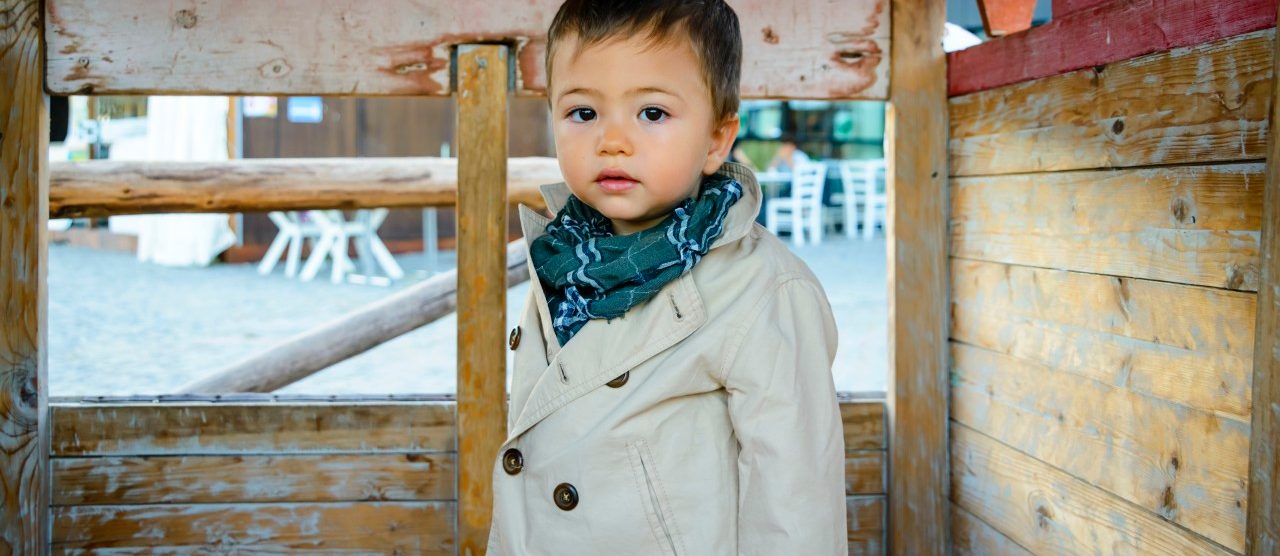When Your Child Has an Autism Diagnosis

Facing the shock of your child receiving an autism diagnosis can send even the most grounded parent into a tailspin of asking: Why? But you can adapt and do well for your child.
Paige and Iain just thought their son, Lochlan, was “quirky.” He never called for Mama or Dada. He avoided eye contact. He was obsessed with putting things in order. All classic symptoms of autism.
His autism diagnosis at 3 caused his parents an array of emotions — shock, anger, frustration — that eventually gave way to acceptance of his condition and the natural instinct to help their child. With special classes, Lochlan’s vocabulary and eye contact have now greatly improved, and he’s learned to interact with his parents and others.
Research about and treatment for autism have come a long way since people once thought there was just “something wrong” with kids with autism. It’s not “your fault.” Autism runs in families, is on the rise, and each child with the disorder is different. Still, facing the shock of your child being diagnosed with autism can send even the most grounded parent into a tailspin of asking: “Why? How on Earth can we deal with this?”
Paige says that, based on her and Iain’s experience, her advice to parents of kids with an autism diagnosis is don’t accept at face value what an “expert” and public figure says about causes and treatments. Do your own research. Find an expert with whom you and your child are comfortable and use that person as a sounding board, she told Kids Health.
Even then, don’t take what experts say as “gospel,” she adds. Your child is unique, and you have to act accordingly by finding out what works best for your kid. “And don’t be afraid to ask questions 50 times until you can get your mind around it,” she says.
Seek and listen to people who have been through the diagnosis, she says. Find local societies and other resources where you can meet other parents. Learn what helped them; their experience can go a long way toward helping you come to terms with yours. (You also need to learn how to take care of yourself, and avoid feeling exhausted, overwhelmed, or even defeated.)
Most of all, you don’t have to welcome the autism diagnosis, but you should embrace it. Paige says she and her husband discovered that Lochlan’s diagnosis opened more doors to their child than they they ever would have found had he not been diagnosed.
“You can improve your parenting and your life by becoming your child’s student,” Stephen Borgman, another parent of an autistic child, says in Psychology Today. It’s worth noting that Borgman is a psychotherapist who frequently works with what he calls “neurodiverse” children and adults.
Improving your parenting of an autistic child means going with their flow, Borgman explains. Rather than seeing your child as a damaged soul who needs rewiring (a likely impossibility), look for what’s special. Borgman’s son, David, now 15, has taught him generosity, humor, creativity, an original take on life, and love of nature and animals.
David, for instance, once told Borgman to stop when they were driving past a woman holding a sign and asking for money. Borgman had dismissed her without a thought, until his son spoke up. “Giving made a better person out of me,” Borgman says.
Overall, he says his learned lessons mean, for other parents, that they should honor their child’s unique strengths, interests, and points of view. Enjoy the lessons your can teach you. Write them down and share them with your child. “It will validate them,” he says, “and deepen your appreciation for the magnificent people they are. And in the process, you will become a better parent and person.”
Borgman’s story requires a caveat. His son has autism spectrum disorder (ASD), once called Asperger’s syndrome. Kids with ASD typically have less severe symptoms without the language delays of kids with classic autism, according to the Autism Society.
To the untrained eye, in other words, such a child may seem like a “neurotypical child behaving differently.” Children with autism are often viewed as “aloof and uninterested in others,” while kids with ASD will more likely be socially awkward but want to fit in.
Still, at its heart, Borgman’s advice is sound for any parent of a child with autism because acceptance and patience, which lead to profound moments, is important in any case. Having both virtues will likely make you a better parent, whether you realize it or not. That’s the point. You can always learn from your autistic child, even if she requires more treatment for a longer time and is less communicative along the way than Borgman’s son. If nothing else, you learn that your child isn’t damaged. Your child is special.
Finally, Bec Oakley, an Australian writer with autistic children and a seriously sharp sense of humor, reminds the world on her website Snagglebox that a big part of being a better parent to your autistic child is having support. She notes that most won’t ask for it.
She offers many practical ways that family, friends, and anybody else can help parents of autistic kids. She actually calls it “The Awesomely Big List of Ways to Help Parents of Autistic Kids.”
Her first tip, for example, is to “talk about it.”
“Autism is a big deal,” she says. “It takes up most of the thoughts and minutes in the day of parents as they try to learn about and help their kids, especially in the beginning. So don’t ignore the elephant in the room, no matter how uncomfortable or strange it might feel to you. Your friends might not be ready to discuss it, or be sick to death of hearing the word, but they’ll let you know and will be grateful that you cared enough to ask.”
Updated:
April 03, 2020
Reviewed By:
Janet O’Dell, RN